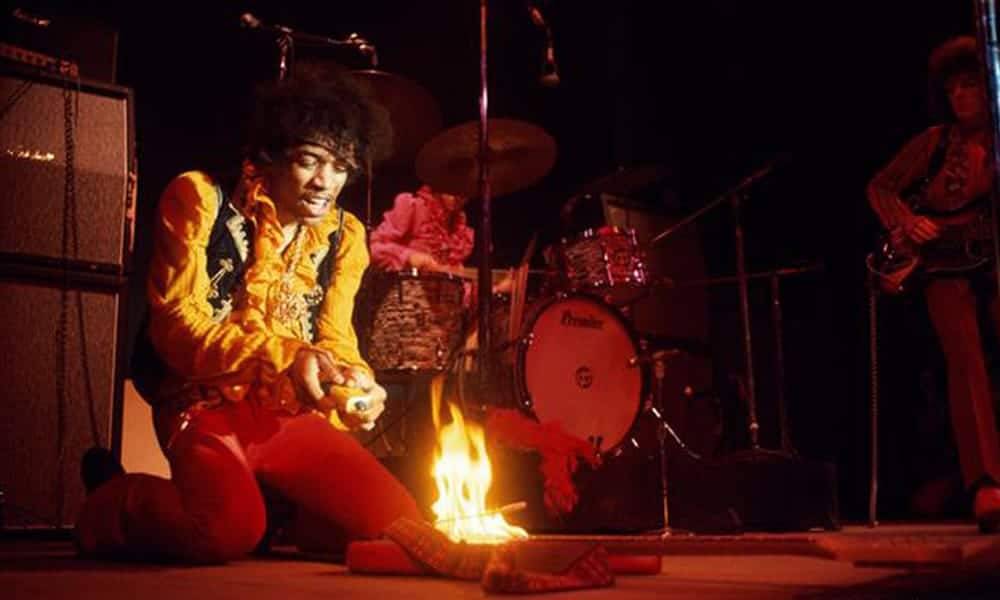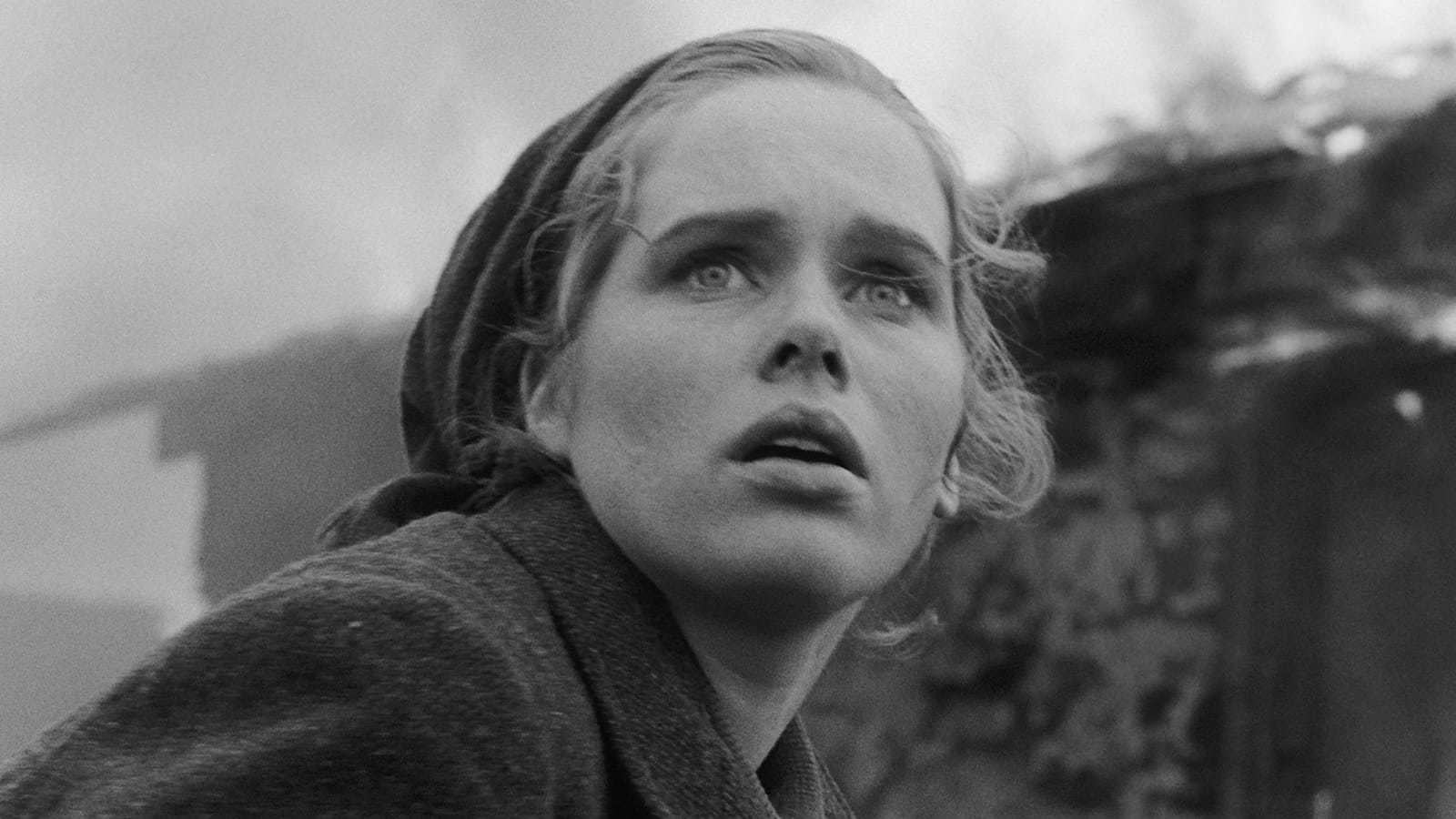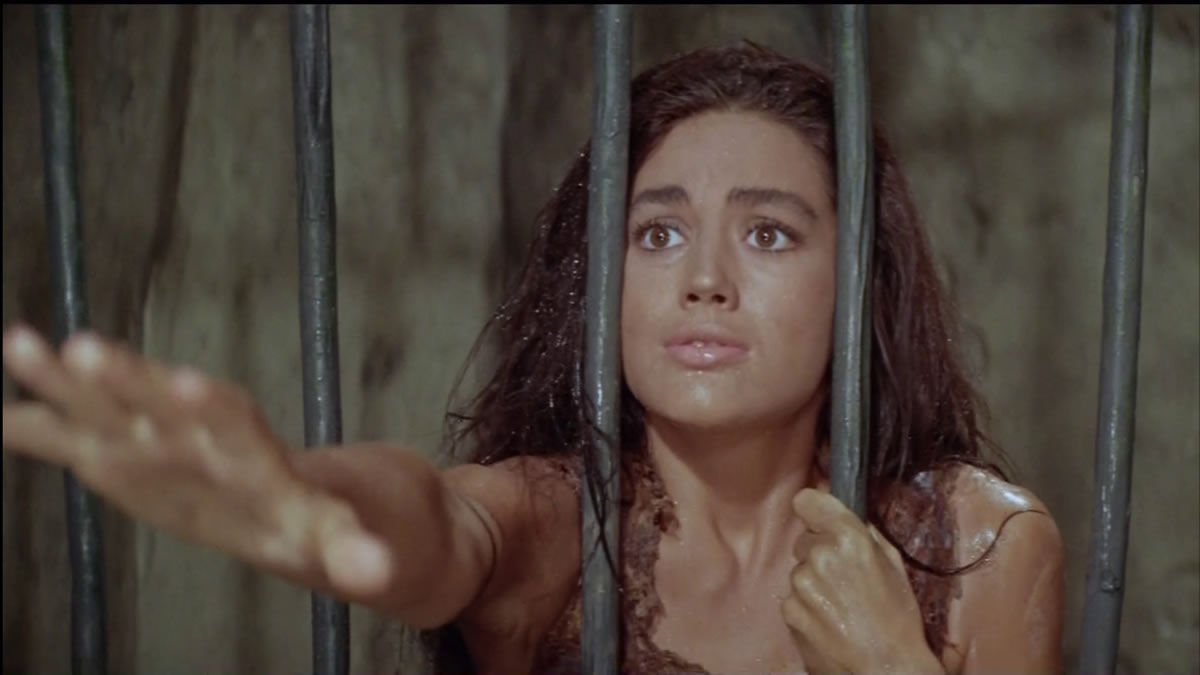my favorite movies of 1968:
(1) Monterey Pop
(2) Romeo and Juliet
(3) High School
(4) Shame
favorite of 1968:
(Documentary. Directed by D.A. Pennebaker.)
This 1967 music festival included the Jimi Hendrix Experience, the Who, Janis Joplin (as the singer of Big Brother & the Holding Company), Simon & Garfunkel, Otis Redding, the Mamas & the Papas, the Jefferson Airplane, and Ravi Shankar.
Janis Joplin singing “Ball and Chain” makes for a dramatic movie scene. Watch for Mama Cass of the Mamas & the Papas in the audience, looking on in awe in the video below (at 3:28 and 5:26):
You can stream it on the Criterion Channel (with bonus features including Hendrix’s full set) or Max. If you don’t subscribe to the Criterion Channel, try a free trial.
2nd favorite of 1968:
(Leonard Whiting, Olivia Hussey, Milo O’Shea, Michael York, John McEnery, Natasha Parry, Pat Heywood. Directed by Franco Zeffirelli.)
Looking back on the movie in 2000, Ebert remembered watching Zeffirelli shoot the balcony scene between 16-year-old Olivia Hussey as Juliet and 17-year-old Leonard Whiting as Romeo:
It was my good fortune to visit the film set, in a small hill town an hour or so outside Rome, on the night when the balcony scene was filmed. I remember Hussey and Whiting upstairs in the old hillside villa, waiting for their call, unaffected, uncomplicated. And when the balcony scene was shot, I remember the heedless energy that Hussey threw into it, take after take, hurling herself almost off the balcony for hungry kisses. (Whiting, balanced in a tree, needed to watch his footing.) …Zeffirelli said what was obvious: That the whole movie depended on the balcony and the crypt scenes, and he felt now that his casting decision had proven itself, and that the film would succeed. It did, beyond any precedent for a film based on Shakespeare. … The movie opened in the tumultuous year of 1968, a time of political upheaval around the world, and somehow the story of the star-crossed lovers caught the mood of rebellious young people who had wearied of their elders’ wars.
Stream Romeo and Juliet on these sites.
3rd favorite of 1968:
(Documentary. Directed by Frederick Wiseman.)
Frederick Wiseman, the prolific documentarian, is strict about using only raw footage of everyday life with nothing added: no interviews, no narration, no explanatory text. A Wiseman documentary makes you feel like a fly on the wall within an institution or occupation. The goal isn’t to tell a story from beginning to end, but to give you a sense of what it’s like to be there for one day.
A 1990 New York Review of Books piece describes Wiseman’s 1968 documentary:
Virtually everything in High School, a savagely comic portrait of a “good” public high school in Philadelphia, gathers around a few central ideas: the school’s use of banality to control the students, the suppression of the student’s sexuality and independence. The movie begins with a teacher starting her class by reading the “thought for the day” (“What I do today is going to change my life tomorrow”). … The “thought for the day” is banal, but it is also appalling, for we realize that it is the school, not the students themselves, that is trying to change their lives. … [I]n the final sequence, … the principal … reads to the faculty a letter from a recent graduate, a boy expecting to die in Vietnam. “Don’t worry about me,” the boy writes. “I’m just a body doing a job.” Everywhere in the school, in the classrooms and administrative offices and in the long hallways, we have seen the omnipresent teachers and school officials, frightened and rule-bound, trying to turn out teenagers who will submit to authority. In this case they have apparently succeeded. The boy, in words of self-negation that the principal applauds, has surrendered to the school even the meaning of his own death.
The student who wrote that letter did, as he anticipated, die in the Vietnam War. The principal informing the faculty of that terrible news does not do so in a disturbed or even somber tone, but seems to be beaming with pride while announcing the details of his life insurance payout.
In other scenes, authority figures convey questionable attitudes about sex and gender to students. A male teacher tells a student that a dress she wore to the prom was too short:
A female teacher then tries to support him by saying: “I have to wear a long gown. I love to! And I can’t walk in it! I can’t get in a car comfortably!”
But this isn’t a simplistic documentary that demonizes the school at every turn. In this scene, Simon & Garfunkel’s song “The Dangling Conversation” is taught as poetry by a teacher who’s clearly trying to reach and inspire students:
In a 2016 Oscar acceptance speech, Wiseman (who’s still making documentaries in his 90s) revealed his method:
I usually know nothing about the subject when I start. And I know there are those who feel I know nothing about it when it’s finished. I never start with a point of view about the subject or a thesis that I want to prove. I also don’t do any research in advance of the shooting. I usually don’t know in advance what’s going to be shot or what I’m going to stumble across. … I think it’s as important to document kindness, civility, and generosity of spirit as it is to document cruelty, banality, and indifference.
Stream High School on Kanopy.
4th favorite of 1968:
Shame [Swedish: Skammen] (Liv Ullmann, Max von Sydow, Gunnar Björnstrand. Directed by Ingmar Bergman.)Ingmar Bergman’s only anti-war movie. The leading woman, Liv Ullmann (who was in a relationship with Bergman at the time and had a child with him) said in an interview on the Criterion blu-ray and DVD: “Ingmar was scared of war. He was scared less of what it would do in terms of killing, destroying people, more so what it would do with their souls, with their human ability, with who they really were.”
The Criterion essay on this movie describes the premise:
The relentless, Kafkaesque backdrop of a never-ending war puts a troubled marriage into stark relief. … Eva and Jan Rosenberg [Ullman and Max von Sydow], former classical violinists, have moved to a remote island to escape the civil war ravaging their unnamed country. They eke out a living selling produce they grow on their small farm. … The movie picks up with the couple shortly before shock troops surge in from the sea. … Jan devolves into a cold-blooded killer determined to survive at any cost. …
In Shame, a movie about two musicians, music is often mentioned but never heard, because their lives are bereft of music and so much else.
Shame never specifies the location or the war we’re seeing. The effect is to leave us feeling that this could be any war, that its devastating effects on this couple could happen to anyone, and that it barely matters which side is which.
Stream Shame on the Criterion Channel (with extras). If you don’t subscribe, try a free trial. If you want to own it, you could buy Criterion’s set of 39 Bergman movies in the Barnes & Noble 50% off sale on all Criterion movies, which happens every July and November. (Amazon sometimes lowers prices at the same time.) I have the set — an amazing deal at less than $4 per blu-ray.
5th favorite of 1968:
(Charlton Heston, Roddy McDowall, Kim Hunter, Maurice Evans, James Whitmore. Directed by Franklin J. Schaffner.)
As you can see in that video clip, the original Planet of the Apes movie shows us a world where apes lead a purportedly civilized society and have trouble believing that an animalistic human species could be intelligent. Co-written by The Twilight Zone’s Rod Serling, this sci-fi adventure movie is both fun and meaningful. I recommend watching it along with The Time Machine (one of my favorite movies of 1960) and Island of Lost Souls (one of my favorites of 1932).
Planet of the Apes begins with an astronaut crew traveling far through space and time. Charlton Heston, who gives a famous performance as the lead astronaut, has the first words of the movie:
Stream Planet of the Apes on these sites.
Click here for the full list of my favorite movie(s) of each year from 1920 to 2020.








Comments
Post a Comment
Thanks for submitting a comment on my movie blog! 🎬 Your comment won’t show up here right away. 😐 To make sure your comment gets seen, I recommend sharing this post on social media and saying whatever you feel like! 🤓